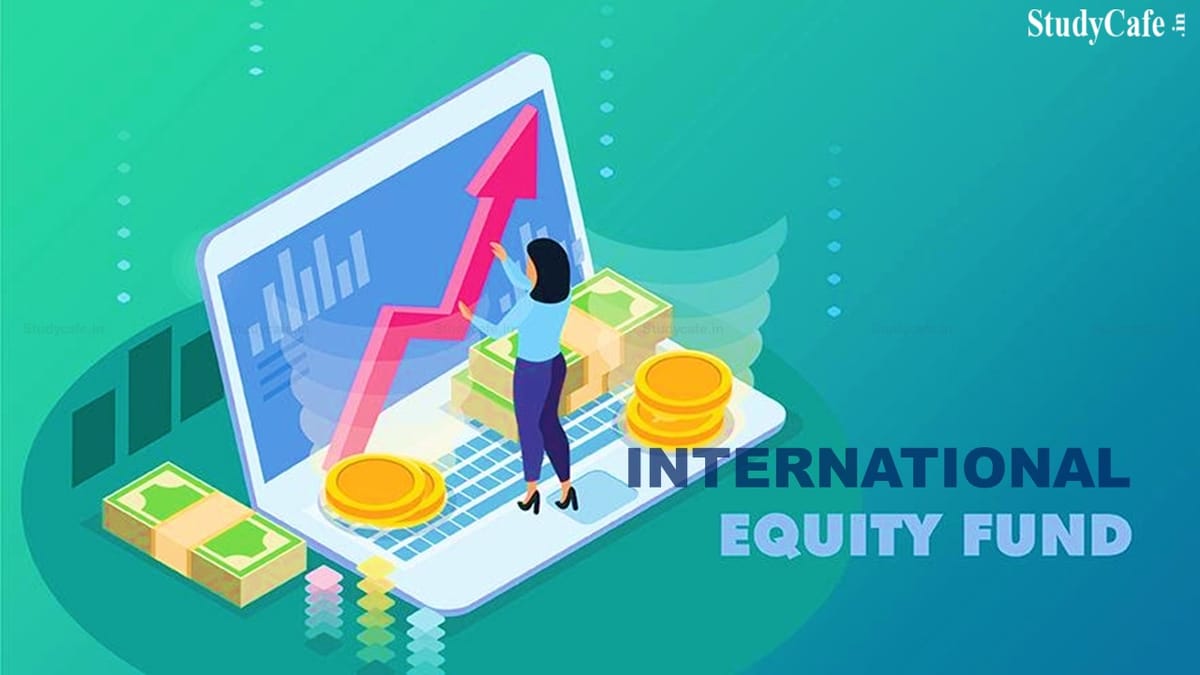Are you ready to invest in international equity funds?
Deepshikha | Jul 3, 2022 |

Are you ready to invest in international equity funds?
A mutual fund is categorised as an international equity fund if it invests a majority of its assets (more than 80%) in overseas equities or equity-related products. These funds fall within the Sectoral/Thematic group according to SEBI re-categorization rules.
These funds have two ways of working. One is having an Indian fund manager who makes investment decisions and reviews the stocks of multinational corporations, such as ICICI Prudential US Bluechip Equity Fund, Aditya BSL International Equity Fund — Plan A, etc. Two, they operate as a Fund of Fund (FoF), which means that they do not invest in stocks themselves but rather invest your invested money entirely in another overseas fund, such as Franklin India Feeder-Franklin US Opportunities Fund, DSP US Flexible Equity Fund, etc.
The majority of the foreign equity funds that AMCs in India provide are large-cap focused and invest in US stocks. While some funds also invest in other regions, such as the HSBC Brazil Fund, Edelweiss Europe Dynamic Equity Offshore Fund, Franklin Asian Equity Fund, etc.
The strong profits that these funds have provided to investors in the near term may draw them in. They must be conscious, though, that these returns come with a significant level of volatility.
So, should you put money into a global equity fund? Understanding the advantages and disadvantages of international equity funds as well as how they compare to Indian large-cap funds is crucial to respond to this question.
In India, equity investing in long-term portfolios is still in its infancy. Consider how many investors have accepted long-term fixed deposits in comparison to this.
It’s not a good idea to allocate to overseas equities too soon if you’re just starting in the realm of stock investing. Equity is a volatile asset class, which means prices constantly fluctuate up and down, occasionally very abruptly.
The same holds for global equities. Even more unsettling might be sudden price changes when the underlying asset is unknown.
The best course of action is to first comprehend and become accustomed to short-term volatility in local markets. You may now have a fundamental comprehension of and knowledge of the factors that cause price changes. For this asset, increase your patience and holding capacity.
You should only contemplate investing abroad, where you will have restricted access to both micro and macro information when you can see yourself enduring corrections and volatile market movements.
If you invest in domestic stocks, your returns will be expressed in Indian rupees. Your investment is not impacted by currency.
When it comes to international investment, this is not the same. It will exchange your rupee investment for the currency of the underlying stock or fund. The revenues will be converted back into rupees at redemption.
Therefore, the direction of change in the Indian rupee’s relative value also affects your return. Given the weakening rupee, this is now seen as having a beneficial effect; nevertheless, if you are unable to comprehend the results of this risk, watch for a while before investing.
The diversification that an international equity fund offers is what makes it appealing to investors. Additionally, there is access to businesses and industries that may not be present in the domestic listed equity arena. However, successful businesses also experience ups and downs, and their stock prices fluctuate in unison.
International equity, with all of its uncertainties, may not be the best option for you if you are just learning about this diversification option but are considering investing money for a goal that is two to three years away from fulfilment.
Choosing to invest in global equity funds is challenging. Take your time while you ascend the ladder. Get familiar with the fundamental risks associated with equity investment first. the necessity for diversity, especially currency diversification, will become clearer. Consider adding investments in this area to your long-term portfolio only after that.
In case of any Doubt regarding Membership you can mail us at [email protected]
Join Studycafe's WhatsApp Group or Telegram Channel for Latest Updates on Government Job, Sarkari Naukri, Private Jobs, Income Tax, GST, Companies Act, Judgements and CA, CS, ICWA, and MUCH MORE!"